below is an extract from Martin Burt's Who Owns Poverty?, a memoir about his work to eradicate multidimensional poverty through his Poverty Stoplight initiative. The publication should be posted via purple Press on September 3 2019.
What if very nearly every thing we idea we knew about poverty become wrong? What if the legions of policymakers, social scientists, economists, aid employees, charities and NGOs marching across the globe were the use of the wrong method, and the inaccurate tactics, to wage the wrong conflict towards poverty?
With the very best of intentions, we've been attempting to assist terrible people ascend the ladder out of poverty within the identify of social and financial justice. however what if we've been, because it had been, leaning the incorrect ladder on the inaccurate wall? And what if being incorrect in regards to the difficulty of poverty turned into the handiest thing standing in the means of finding the solution?
Of route, this may no longer be the primary time that society laboured beneath assumptions later proved to be faulty. recall a time when educators believed that corporal punishment would 'remedy' left-exceeded college students, long before we understood that handedness is determined in utero. medical doctors in a long time previous believed tuberculosis to be transmitted via vampires (and that dry air in caves, deserts or mountains become a amazing treatment) before scientists determined it is brought about by way of micro organism and therefore most beneficial handled with antibiotics. before Copernicus and Galileo, scientists believed the solar revolved around the earth.
the world financial forum launched its reliable book membership on fb in April 2018. Readers international are invited to join and talk about numerous books, both fiction and non-fiction. it's a personal facebook group dedicated to discussing one e-book each month.
each month, we announce a new e-book on our social media channels. We then publish an extract and start a chapter-with the aid of-chapter discussion with group individuals. selected feedback and questions are sent to the creator, who in return sends us a video response.
unlike different booklet golf equipment, the community facets the direct involvement of the authors, supplying you with - our world audience with members throughout the globe - an opportunity to without delay join with one of the most most influential thinkers and experts on earth.
we've featured authors equivalent to Steven Pinker, Elif Shafak, Yuval Noah Harari, and Melinda Gates.
you can be part of the ebook membership here.
follow us on Twitter right here.
observe us on Instagram right here.
"definitely if we're going to get critical about the business of cutting back world poverty, then we've bought to delivery by means of agreeing what we suggest by way of the time period, appropriate?"
Nor have our views on poverty itself been proof against similar debate and revision. searching for to justify the persistent hole between rich countries and negative nations, theorists over the a long time have proffered explanations starting from the cultural to the geographical — and most every little thing in between.
Marxists view poverty because the inevitable outcomes of the uneven distribution of the means of manufacturing wealth in a society. Capitalism became created to prepare construction in the belief that enlightened self-interest and the common sense of the market create wealth for all; it relied on a certain measure of wealth inequality to promote the entrepreneurial spirit and risk-taking habits mandatory to create greater jobs and extra wealth (and on the view that government classes to cut back inequality most effective got in the approach). certainly, it's only in recent years that we've all started to challenge the orthodoxy of inequality as a integral precondition for boom.
somewhere else, the Bible assures us that the terrible will at all times be with us, and the Protestant work ethic reminds us the terrible handiest have themselves to blame — as wealth (the outward signal of God's blessing) is accomplished with the aid of overcoming own, ethical, highbrow or spiritual deficits. And if our complicated work potential we deserve our wealth, the speak have to even be true: we deserve our poverty when it happens.
while these world views proffer competing narratives on why there is poverty, they are surprisingly silent on the question of what poverty really is — as if, in all probability, we are meant to infer the definition from context. but undoubtedly if we're going to get serious concerning the enterprise of decreasing global poverty, then we've got to birth by means of agreeing what we imply by using the time period, appropriate? here, too, we witness the evolution of human figuring out over time.
"in short: the way we define poverty makes it too complex to remedy."

![]()
In our earliest makes an attempt to outline poverty, we alighted on the most simple of answers. Poverty must be a lack of money: an absence of cash coming in (salary) and a lack of funds going out (consumption). Poverty is the contrary of income, wealth and accumulation—all the things society values as inherently good. Armed with this realizing, our solution become to throw money at the issue—within the sort of alms, conditional money transfers and (extra circuitously) trickle-down economics.
When our growth in world poverty reduction hit a plateau, we went returned to first ideas. Some converted poverty from an issue into a chance; witness terrible Bangladeshi and Mexican girls rebranded as 'microentrepreneurs' and offered microloans to develop their cottage industries and thereby enhance their income. For those tinkering with the engine of economic increase, this changed into an exhilarating retrofit designed to harness the potential power of negative individuals, to unleash the energy of small company and to empower girls as financial agents—by giving them the competencies, incentives and motivation they lacked to make enough money to are living neatly.
still others appeared past the query of money to reimagine poverty as a many-faced beast. We all started talking about 'multidimensional poverty', which encompassed an absence of voice, entry, equality, security, fitness, sanitation, training, infrastructure, political representation and so a good deal extra. Yet whereas this new multidimensional framework accounted for a extensive range of societal, structural and political elements that created and maintained poverty, salary changed into still on the correct of the checklist. salary was, rather readily, considered as a key that instantly unlocked neatly-being advancements throughout the board.
Our present definition of multidimensional poverty, youngsters, comes preloaded with two unsettling penalties. These penalties form our figuring out of what explanations poverty and, because of this, what we will do about it.
To take note the first of those, let's consider the Sustainable building desires (SDGs), elaborated by means of the United countries (UN). The simple purpose is 'No Poverty' (generally described in terms of salary and entry to components), and a further sixteen dreams trust hunger; fitness; education; gender inequality; water and sanitation; clear and budget friendly power; work and economic boom; industry, innovation and infrastructure; sustainable cities; responsible consumption and creation; climate exchange and environmental degradation; and peace and justice.
"There's little room in the present paradigm for a bad grownup to have any agency over many of the elements that create their poverty."
There's nothing inherently incorrect with getting all and sundry within the construction sector working from the same definition and towards the equal desires. It's the method by which the SDGs are formulated that creates the difficulty. That's because when one person's poverty is partly, and even totally, field to forces beyond their handle, we negate the efficacy of any individual effort in overcoming that poverty. I might, if I were residing in poverty, be able to boost my profits, but I even have zero influence over structural components that mitigate my capacity to enhance my lifestyles and livelihood, reminiscent of alternate distortions in global agricultural markets, my country's resilience to climatic activities and appreciate for the rule of thumb of law, or even if the Ministry of health gives ample funding for my local sanatorium.
briefly: the manner we outline poverty makes it too advanced to clear up. while we've lengthy considering that deserted the theory that a person's poverty is their fault (as a result of they're too uneducated, lazy or apathetic to supply for themselves), there's little room within the existing paradigm for a terrible adult to have any company over lots of the components that create their poverty. It's too large. Too problematic to have an effect on. Out of their arms. Reliance on external answer-suppliers is baked in, by design.
The second unsettling end result of the existing definition of multidimensional poverty is that it renders building corporations' latest, unidimensional options out of date. development groups, by means of nature, typically focal point on one or two issues; regardless of recognizing that there are lots of interlocking pieces to the puzzle, we only work on certainly one of them, leaving the rest to somebody else. We dig wells and construct bridges. We hand out footwear. We teach journalists. We administer vaccines. We assist farmers develop bigger harvests with out caring about no matter if they can get their crops to market. We empower the women without bringing the men along for the experience towards a greater gender-equal society. We work on lowering infant mortality however go away building faculties to somebody else. We could win the fight, but we'll in no way win the warfare.
" Poverty isn't simply an issue 'over there' anymore — wealth gaps are on the upward push within the united states of the us, Canada, France, Sweden and Germany (amongst others), and we've been pressured to coin new phrases equivalent to 'working bad'."

![A campsite at a homeless tent city in Sacramento California March 15, 2009. Sacramento's tent city has seen an increase in population as unemployment numbers grow in the US. REUTERS/ Max Whittaker (UNITED STATES SOCIETY BUSINESS) - GF2E53H1GHI01]()
photo: REUTERS/ Max Whittaker (united states SOCIETY company) - GF2E53H1GHI01
on the same time, nobody can doubt that poverty — besides the fact that children we outline, measure and tackle it — is a starting to be chance to latest institutions and the explanation for a great deal unnecessary suffering on the planet. Poverty, abject and in any other case, also manifests as expanding levels of wide-scale voter discontent and civil unrest when the state can't be relied upon to deliver basic capabilities and/or carry huge financial growth. And poverty isn't simply an issue 'over there' anymore — wealth gaps are on the rise within the u.s. of america, Canada, France, Sweden and Germany (among others), and we've been forced to coin new phrases (reminiscent of 'working poor') to take care of the stark fact that, for ever-transforming into numbers of people, having a job isn't all the time adequate to put meals on the table. Likewise, individuals from poorer nations are increasingly packing up the few belongings they have and 'voting with t heir toes', journeying to richer countries to seek a stronger lifestyles (no matter if with the aid of option or necessity).
low cost web entry makes it less complicated than ever for poor migrants to look into the lives of those extra fortunate than they are and to glimpse the promise of a much better ordinary of living. What's more, low-cost world trip capability that they don't should spend their complete lives on the outdoor, looking in. The end of the rainbow, with its promised pot of gold, has by no means been more within reach. increasingly, too, bad migrants are tech-savvy tourists, armed with powerful equipment similar to smartphones and facebook. in reality, many businesses helping refugees commonly file that the primary query that migrants ask when crossing a border is: "what's the Wi-Fi password?"
in opposition t this backdrop, I present a deceptively primary query: who owns poverty? It's in no way an idea we've ever articulated earlier than — although, in case you re-verify construction pondering and follow through the lens of this startling question, you may conclude we had quite robust feelings on the subject all along.
global poverty discourse has, to date, worried itself with the question: what is poverty? This looks cost-effective, considering the fact that first rate poverty options rely on good poverty definitions. Yet there's also whatever subtler at work right here, in the event you consider that possessing a thing begins with naming it.
Adam named the beasts within the container and the hen within the air. Conquistadors (re)named the lands they 'found' on behalf of their sovereigns. We identify stars, diseases and social trends with a view to convey them into our sphere of influence. We name, we claim.
When it comes to who has naming vigor over global poverty, it is just about too obtrusive (to the aspect of embarrassment) to element out that poor individuals have historically been relegated to a non-speakme part in somebody else's narrative about their lives. they are passive recipients of someone else's poverty definition, someone else's poverty dimension. on account of this, bad people are additionally locked out of the room the place decisions get made about what our poverty options appear to be, unable to articulate their perspectives and priorities.
"hardly ever, if ever, do poverty specialists trust bad people as equally essential determination-makers, besides the fact that children that every day they remedy problems concerning their household's well-being."
The query 'who owns poverty?' isn't one I pulled out of skinny air. There was no 'eureka moment'. reasonably, it emerged slowly, over the course of years, as a response to a few issues about the international poverty agenda that I found very difficult certainly.
The initial seed of doubt became sewn with the recognition that the definition of 'bad grownup' used by way of poverty specialists hardly perceived to line up with what we have been seeing in our work as a basis helping microentrepreneurs in Paraguay (Fundación Paraguaya). Or rather, it didn't describe everything about them. The pleasure, generosity, creativity, issue-fixing and entrepreneurial spirit we saw led us to conclude that the americans we worked with had been so a good deal greater than quite simply a binary classification of bad versus non-negative. Their lives have been bigger than whether they lived on $1 per day or $2 per day. these labels seemed all the extra inapt and reductionist when applied to 2 people whose particular person experiences of poverty differed absolutely from each and every different.
The subsequent seed was one in every of discontent with the absurdity of there being so an awful lot poverty information on the planet — however none that served the needs of terrible people themselves. We take it with no consideration that the executive departments and construction corporations working to reduce poverty need poverty information to make good strategic and operational decisions. but hardly ever, if ever, do poverty experts agree with terrible individuals as equally essential choice-makers, although that day by day they solve issues concerning their family's neatly-being.
"What would turn up if we gave poverty back to bad people?"
subsequently (in addition to having no input on what's being measured, how and when) negative people have no entry to suggestions amassed about their lives and no manage over what gets done with it, or by using whom.
There are exceptions; i can point to just a few promising initiatives that are 'listening to the voices of the negative' through participatory statistics collection and qualitative research. i ponder, however, no matter if we're most effective taking note of what we wish to hear (feedback on our personal indicators, the use of our own manner). I additionally ask yourself what happens to the insights generated through this listening. Are they used as a foundation to co-create and co-put in force group-led construction tasks? Or are they effortlessly used to tweak around the edges of our personal standardized package of programs and features?
greater customarily, besides the fact that children, the anti-poverty software-design cycle begins with poverty consultants descending on a village with clipboards, extracting pre-defined data elements concerning the lives and livelihoods of bad individuals and returning to go workplace to combination the statistics into a spreadsheet. within the worst situations, it starts with consulting governments and civil servants rather than communities — as absurd a state of affairs as a physician who takes the temperature of a medical institution administrator, as a substitute of the patient, earlier than prescribing the drugs (within the phrases of my colleague, Andy Carrizosa).
The questions that the basis begun asking had been: What would happen if we gave poverty returned to bad americans? What would turn up if we might locate a way for terrible individuals to ask their own questions and create their own poverty symptoms? What if we might collect poverty suggestions in a way that put valuable information into the fingers of households, so they could be those planning and imposing their own family poverty-removing program? And what if we allowed poor americans to define what success appears like?
during the last decade, the basis has been on a adventure to just do that. while this adventure continues to be underway, it is already signposted with a few unique landmarks and discoveries.
"When people have the vigor to name their own poverty, to name out their problems for themselves, they also have the power to do anything about those complications."
the primary of these is that the richness of poverty can also be found in its nuance. thanks to the work of social scientists and economists in the global North, we've an incredible range of poverty warning signs at our disposal. although, we have found that no single constellation of deprivations will also be used to explain everyone's poverty. No single index can competently trap the diverse methods during which a single household experiences poverty and non-poverty. in case you believed Tolstoy when he spoke of happy households are all alike, accept as true with me after I say poor families are all negative of their personal methods.
The 2nd discovery pertains to efficacy. When individuals have the power to identify their personal poverty, to name out their issues for themselves, they even have the vigor to do anything about those issues. To outline the solution; to own the solution. Time and again, we've considered bad families devising options to issues we up to now regarded intractable. and that i'm not speakme about solutions to reduce their poverty, or to alleviate its results with the intention to make it a bit more bearable, but options to get rid of their poverty once and for all.
What's extra, we now have viewed poor households connecting to each and every different to share poverty options and ideas, in preference to sourcing them from external support worker's. after all, not every individual in a community suffers from malnutrition. not each individual in a neighborhood suffers from domestic violence. where a negative adult can determine someone else beating the percentages in one selected factor of poverty, they can create horizontal learning networks that tap into in the community held capabilities and solutions. The bad can assist no longer handiest them- selves however additionally each and every other to beat their deprivations.
We may have all started with a small question, but what we've ended up with is nothing wanting a revolution. My book Who Owns Poverty? is a primary try and inform the story of that revolution.
 © supplied by using Galadari Printing & Publishing LLC Imran Khan departs for Pakistan on commercial flight
© supplied by using Galadari Printing & Publishing LLC Imran Khan departs for Pakistan on commercial flight 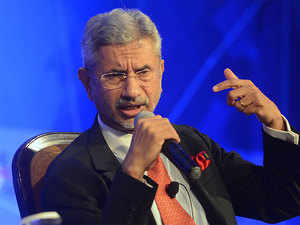 external Affairs Minister S Jaishankar.UNITED international locations: Pakistan overseas Minister Shah Mahmood Qureshi on Thursday boycotted external Affairs Minister S Jaishankar's opening remark at the meeting of the SAARC Council of foreign Ministers, asserting his country will not engage with India "unless and unless" it lifts the "siege" in Kashmir.
external Affairs Minister S Jaishankar.UNITED international locations: Pakistan overseas Minister Shah Mahmood Qureshi on Thursday boycotted external Affairs Minister S Jaishankar's opening remark at the meeting of the SAARC Council of foreign Ministers, asserting his country will not engage with India "unless and unless" it lifts the "siege" in Kashmir.











 ISLAMABAD: President Dr. Arif Alvi on Sunday set an illustration for the countrymen, above all for the travelers via identifying up trash right through his five-kilometer hike in the scenic mountains close Changla Gali.
ISLAMABAD: President Dr. Arif Alvi on Sunday set an illustration for the countrymen, above all for the travelers via identifying up trash right through his five-kilometer hike in the scenic mountains close Changla Gali.

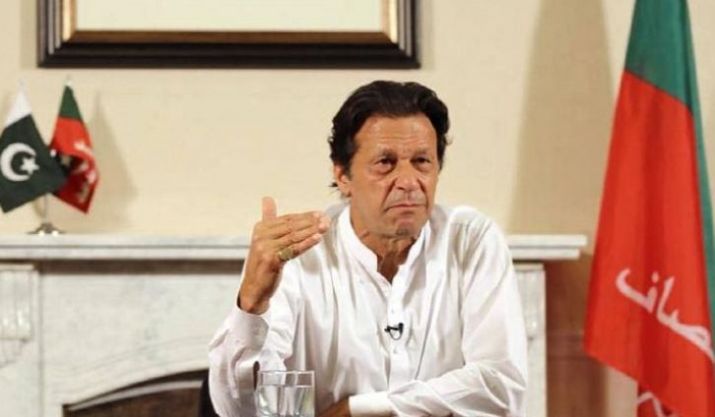 picture supply : FILE
picture supply : FILE  © Murali Krishnan, Korri aus Indien supplied by means of Deutsche Welle
© Murali Krishnan, Korri aus Indien supplied by means of Deutsche Welle  © AFP/A. Qureshi Kumar: 'since Imran Khan became Pakistan's best minister, issues have became unhealthy'
© AFP/A. Qureshi Kumar: 'since Imran Khan became Pakistan's best minister, issues have became unhealthy' © offered by using Hearst television, Inc. greenville girls giving
© offered by using Hearst television, Inc. greenville girls giving 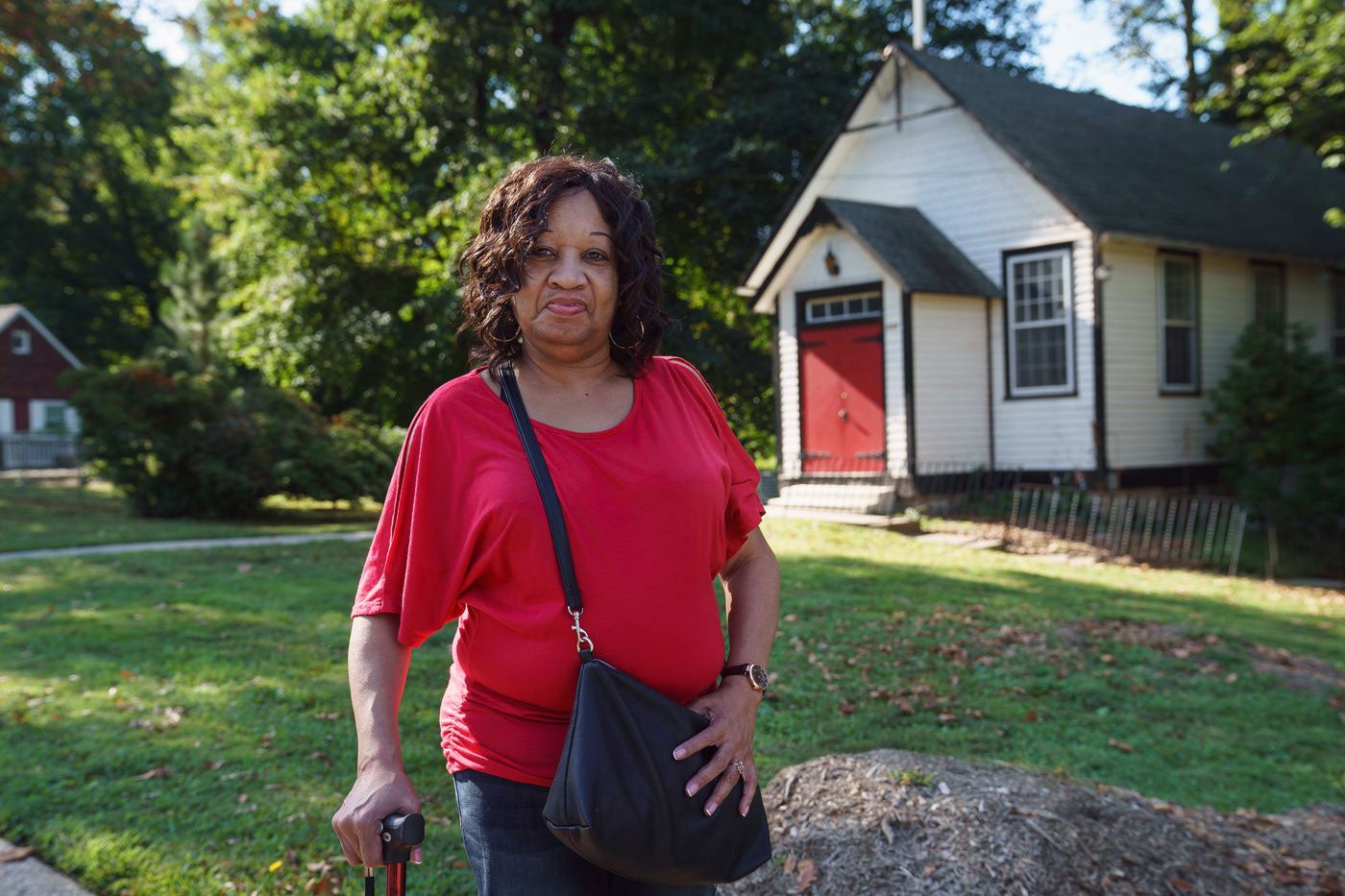 Glenda Banner used to donate to the Somerton Interfaith food bank. but age and health problems modified her lifestyles. Now she's a consumer of the pantry. (Jessica Griffin/Philadelphia Inquirer)
Glenda Banner used to donate to the Somerton Interfaith food bank. but age and health problems modified her lifestyles. Now she's a consumer of the pantry. (Jessica Griffin/Philadelphia Inquirer) 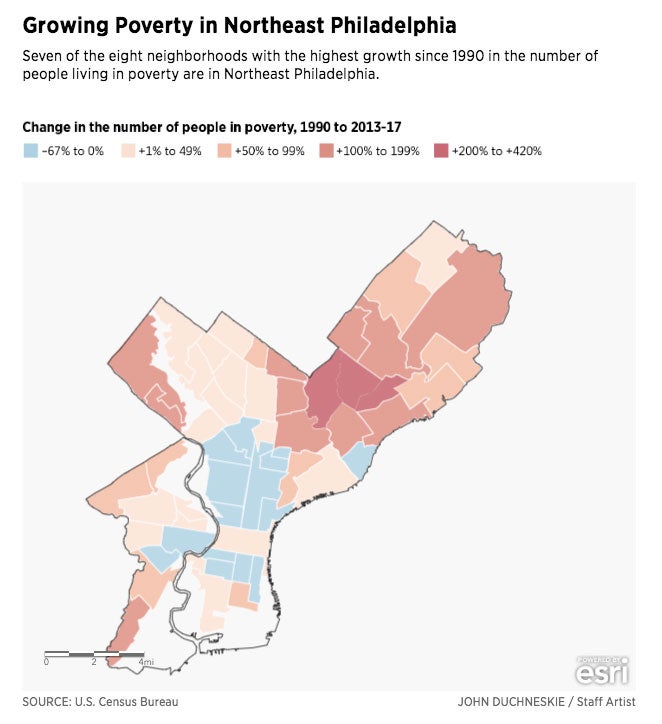
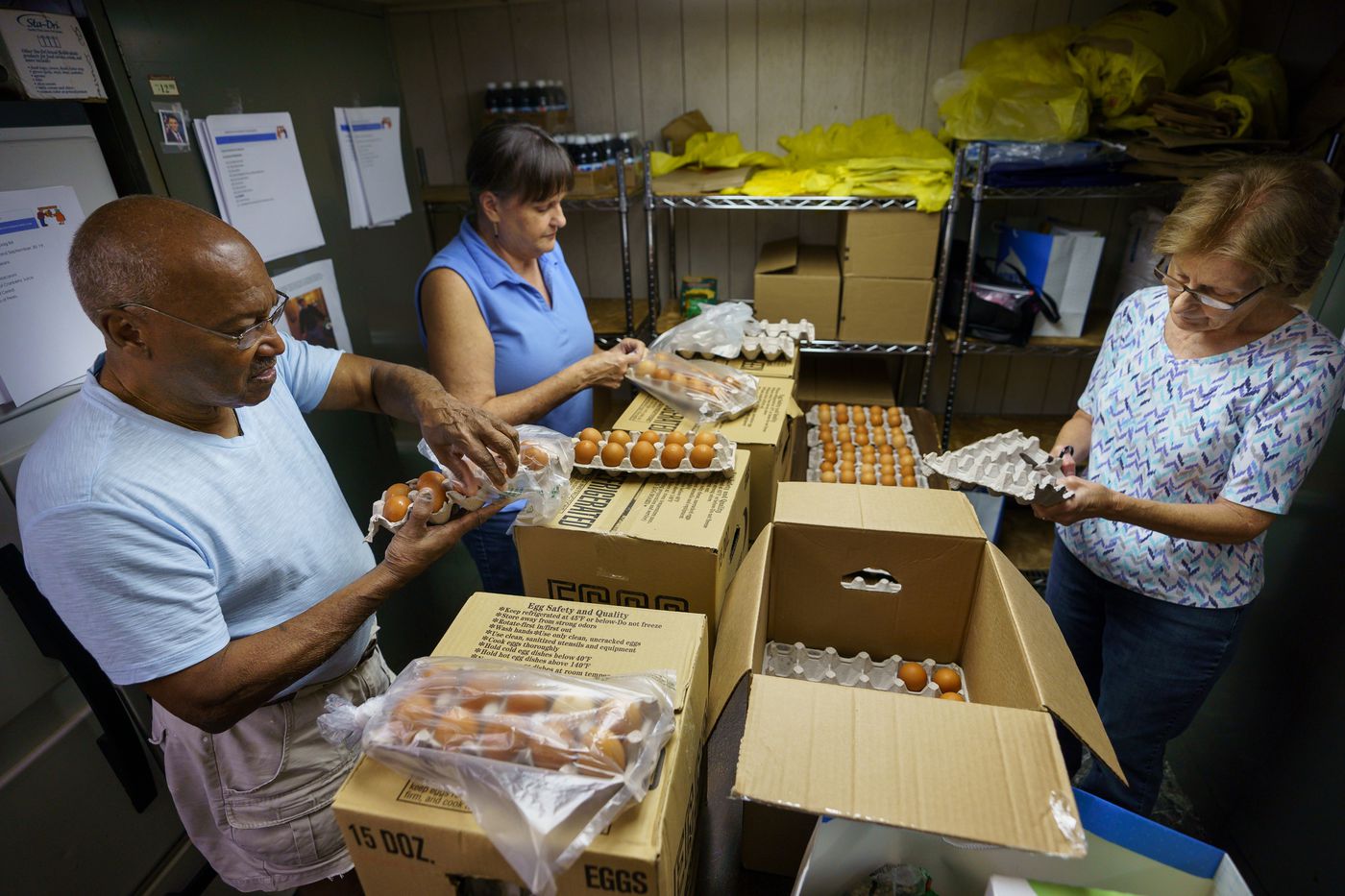 (Left to correct) Volunteers Compton Chase, Jane Keator, and Jeannie Sepielli work to meet a growing to be want at Somerton Interfaith meals bank. (Jessica Griffin/Philadelphia Inquirer)
(Left to correct) Volunteers Compton Chase, Jane Keator, and Jeannie Sepielli work to meet a growing to be want at Somerton Interfaith meals bank. (Jessica Griffin/Philadelphia Inquirer)  The Philadelphia Inquirer is one of 21 news groups producing Broke in Philly, a collaborative reporting venture on solutions to poverty and the metropolis's push towards financial justice. See all of our reporting at
The Philadelphia Inquirer is one of 21 news groups producing Broke in Philly, a collaborative reporting venture on solutions to poverty and the metropolis's push towards financial justice. See all of our reporting at 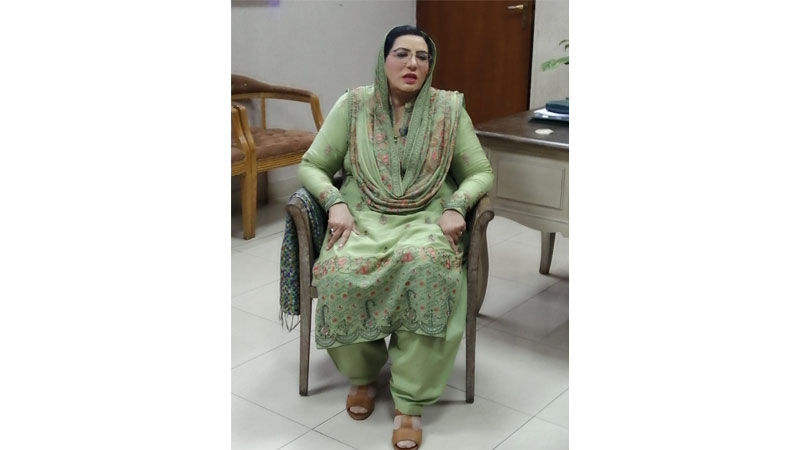 Will Firdaus Ashiq Awan comply with the media representation of herself?
Will Firdaus Ashiq Awan comply with the media representation of herself?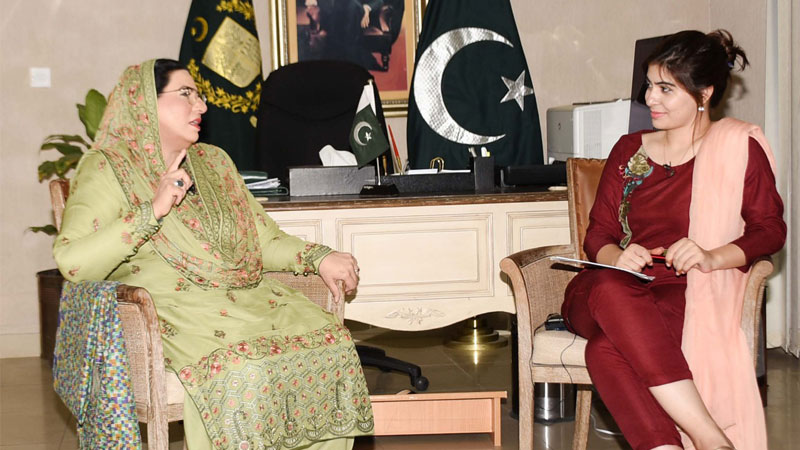 Journalists are working day and nighttime but nevertheless disadvantaged of wages. Is there any measure, the information department is taking for it?
Journalists are working day and nighttime but nevertheless disadvantaged of wages. Is there any measure, the information department is taking for it?